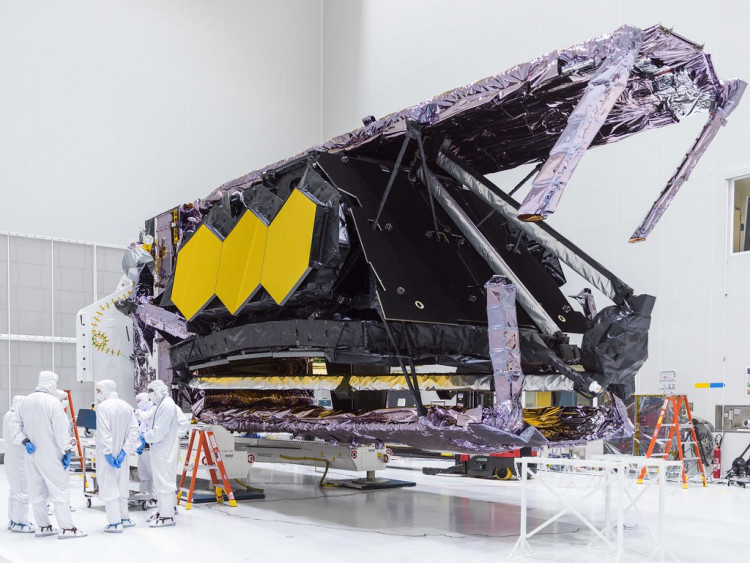NASA issued a brief update on the expected launch date of the $10 billion James Webb Space Telescope on Monday, and it wasn't exactly a welcome message.
The launch date of the enormous, space-based telescope will be pushed back from Dec. 18 to at least Dec. 22 due to an incident that occurred during processing operations at the launch site in Kourou, French Guiana.
"Technicians were preparing to attach Webb to the launch vehicle adapter, which is used to integrate the observatory with the upper stage of the Ariane 5 rocket," NASA said in a blog post. "A sudden, unplanned release of a clamp band-which secures Webb to the launch vehicle adapter-caused a vibration throughout the observatory."
It's not known when the incident occurred. During a pair of Nov. 18 briefings on the science and instruments of the Webb telescope, NASA officials made no mention of it, claiming that the mission was still on track for a Dec. 18 launch.
"Of course, when you work on a $10 billion telescope, conservatism is the order of the day," Thomas Zurbuchen, NASA associate administrator for science, said when asked about the incident during the Double Asteroid Redirection Test (DART) mission press conference.
He explained that because Webb is so close to launch, it lacks sensors that were installed before it was brought to French Guiana to assess the impact of the clamp release on the spacecraft, leaving only computations to estimate the force used.
NASA is heading an anomaly review board that will investigate the incident and do extra testing to ensure that no part of the telescope was damaged. When the testing is finished at the end of this week, NASA will release an update.
Because Webb's 6.5-meter mirror must unfurl once it reaches an orbit 1.5 million kilometers from Earth, construction has been arduous. This is a very complicated process, with almost 300 single points of failure on board the observatory. NASA has struggled to test them all on Earth in settings that closely resemble the temperatures, pressure, and microgravity of deep space.
Any hiccups in Webb's progress toward launch are particularly distressing now since it has traveled such a long and winding journey to get here. NASA's successor to the enormously successful Hubble Space Telescope was originally scheduled to launch roughly a decade ago. The complicated telescope has been beset by technical issues and delays since then.






